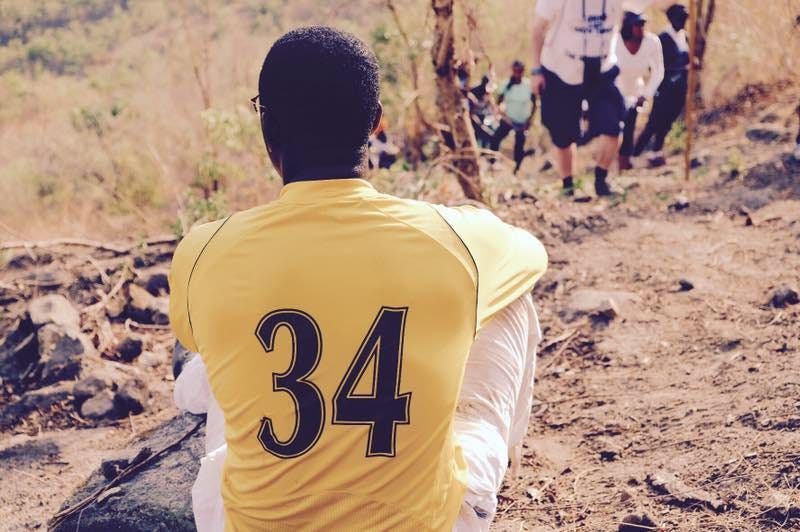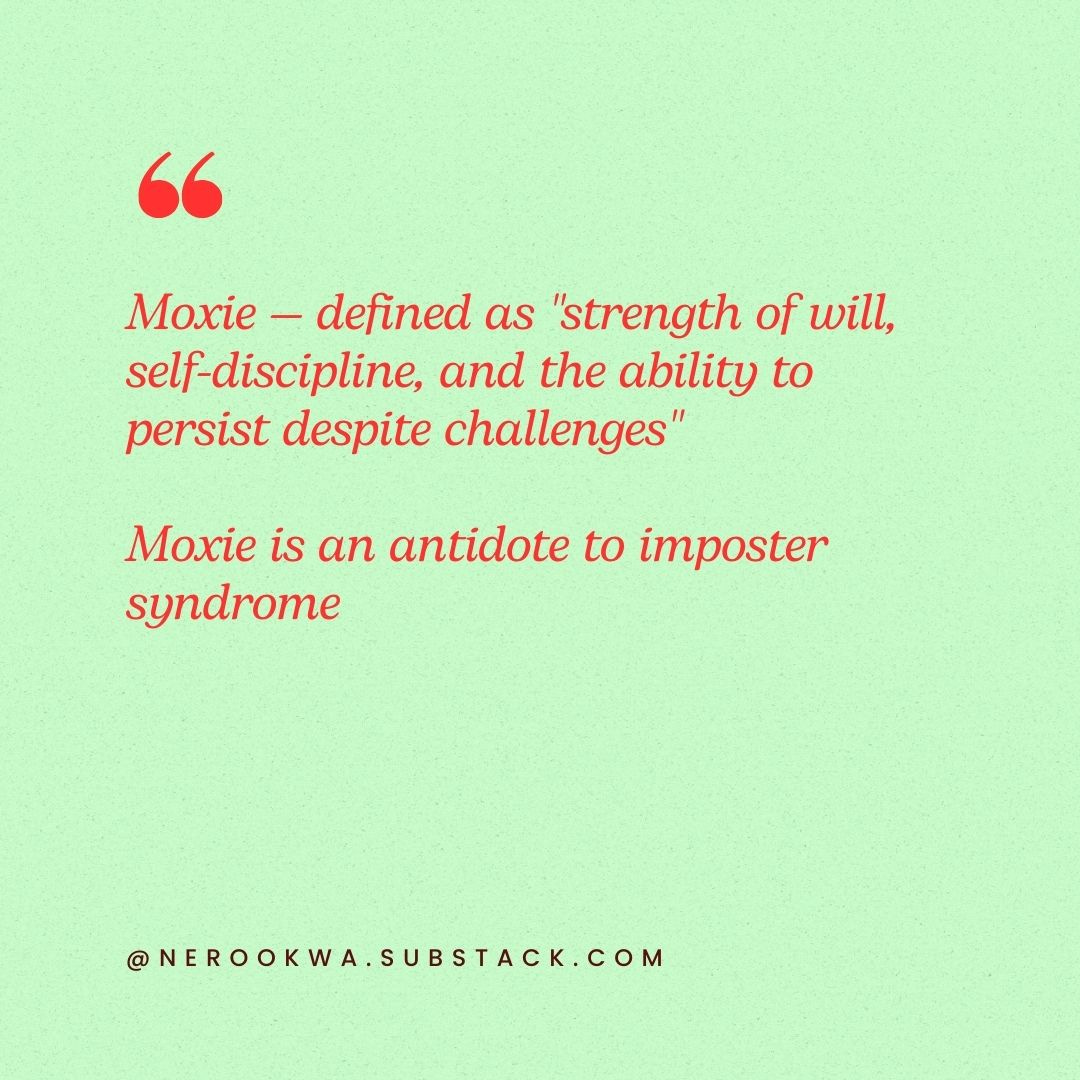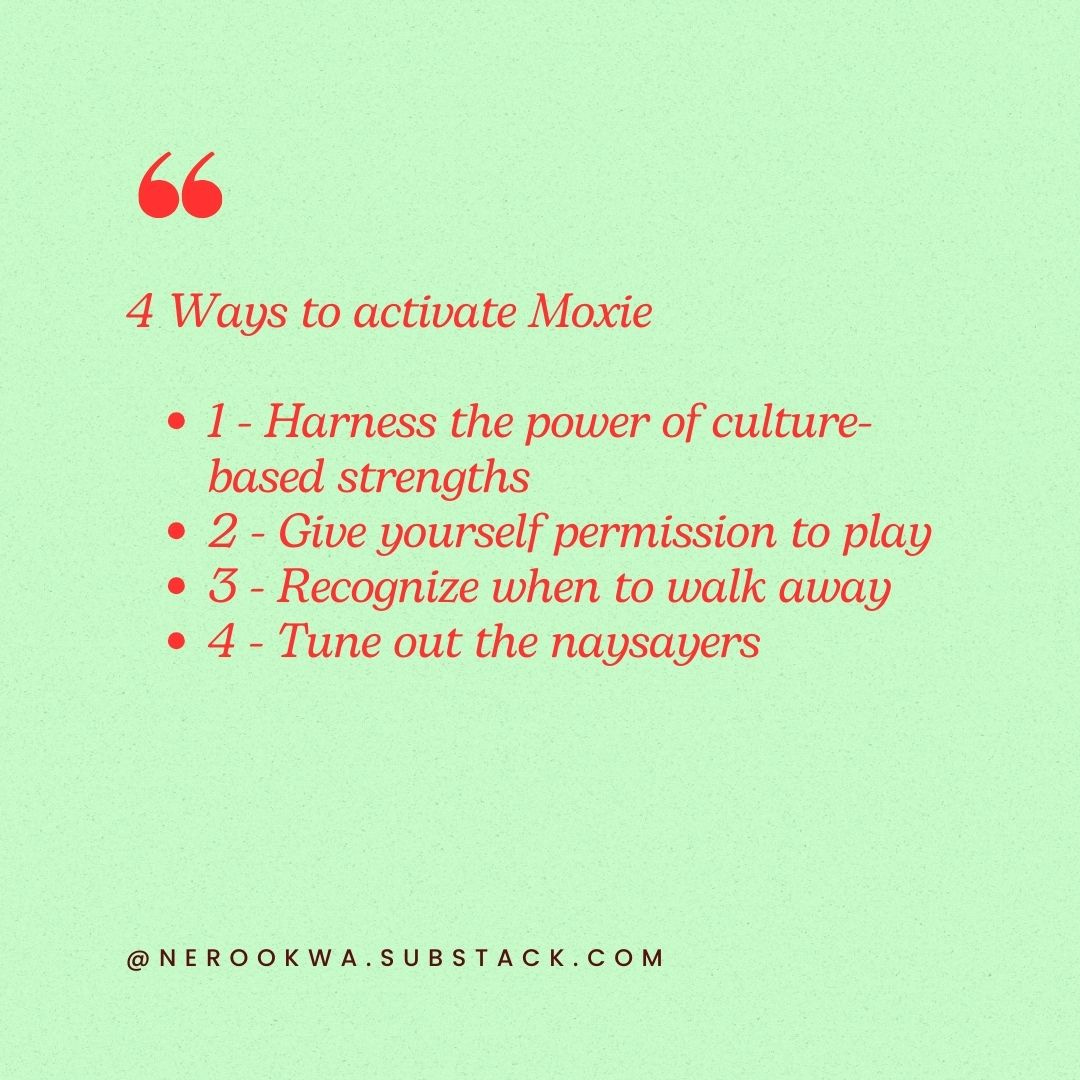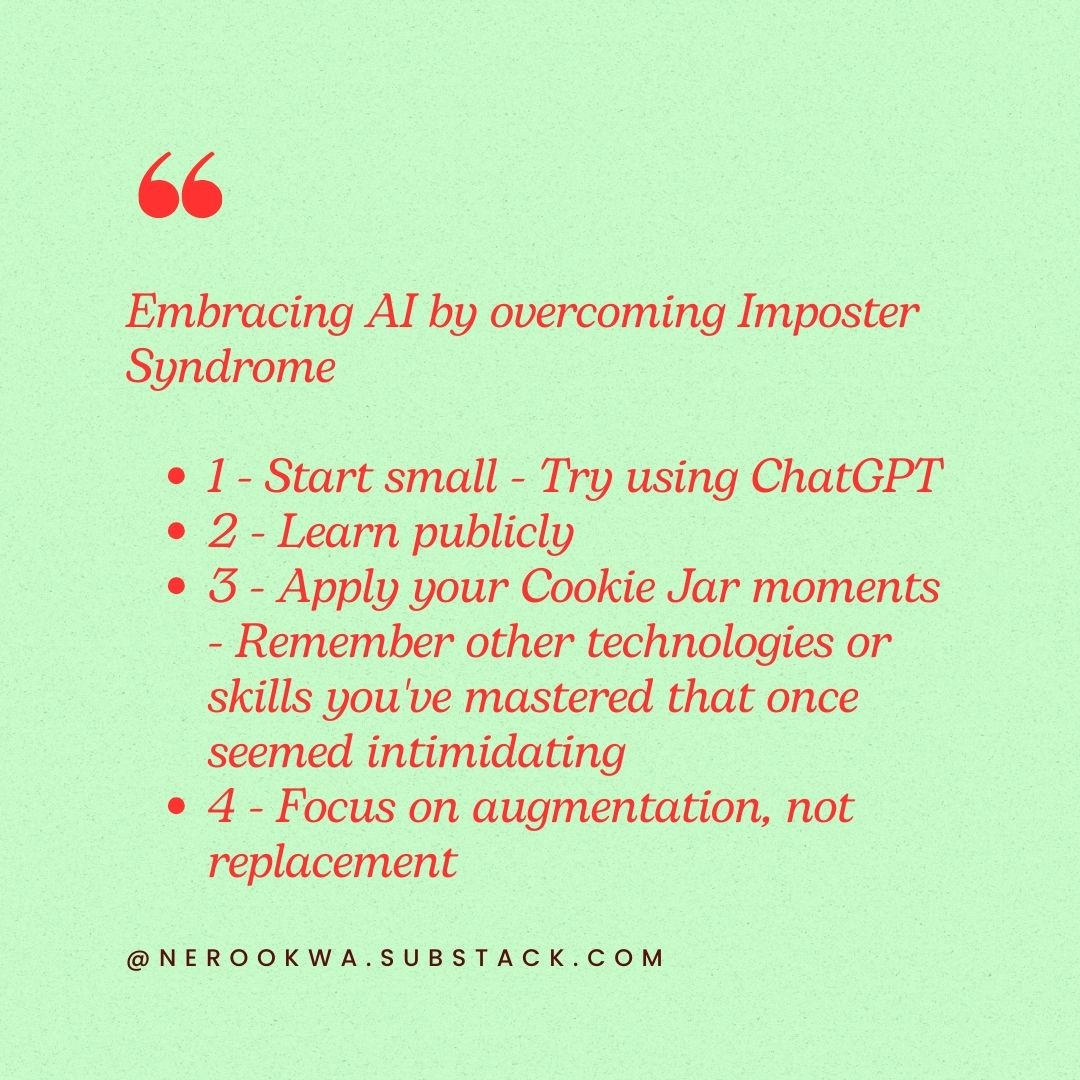#78. Imposter Syndrome = Superpower: 4 Years Later
Transforming professional obstacles into moxie: How overcoming self-doubt builds resilience and fuels achievement
We are still celebrating the 4-year anniversary 🎉✨ of this newsletter.
Originally published February 27, 2021
Editor's Note: As I celebrate the 4-year anniversary of this newsletter, I'm revisiting some of the most impactful pieces I've written. This article on imposter syndrome resonated deeply with many readers, generating more responses than almost any other piece. Four years later, its message remains just as relevant, though my perspective has evolved in ways I'll share below.
The Original Article
I remember the first time I attempted to learn to code. It was the first year at university, our course instructor was going through the material at a very fast pace. Every week, unlike my course mates, I just did not get it. Despite gaining admission to study Engineering at one of the best universities in the world, I felt like a fraud.
Fast forward to 2016, I am dating a software developer (which means she can really code). I am in the company of her colleagues from Andela. They are chatting about their work: coding and learning the latest languages and tools. They make it sound so effortless. At the time I had started to learn to code again. I asked one of them how long will it take me to get to a level that I can get a job with this new skill: 6months full time at 6hrs/day. It felt hopeless.
Imposter Syndrome is a feeling of inadequacy and self-doubt.
Have you ever felt like you don’t belong? Like your colleagues are going to discover you’re a fraud, and you don’t actually deserve your job and accomplishment? That it was probably down to luck or a fluke, and soon you will be found out. These feelings are known as imposter syndrome, and we experience them everywhere: at work, with friends, and within our relationships.
They are particularly prevalent with “Perfectionists” and “Experts”. This feeling holds us back from that next step: applying for that job, stepping up to a new project, and starting a business.
We must always remember that:
Other people have felt the same way as well.
No amount of success would make it go away.
6 Ways to activate your new Superpower: Imposter Syndrome
Recognize imposter feelings when they show up — Acknowledge and evaluate the thought. Ask yourself ‘Does this thought help or hinder me?’
Reframe the thought — Instead of saying to yourself they are going to find you out, or you don’t deserve the opportunity, remind yourself that this is an opportunity to learn something new
Conquer doubt with action — despite the feelings of doubt and inadequacy, just do it. That thing that seems beyond you, take action towards it. As you act, your experience and confidence will improve.
Ask for advice/ Speak to someone you can trust - you will discover that others feel the same way too.
Use the Cookie Jar — The Cookie Jar is a concept of somewhere (mentally) we put all our past successes and failures that we overcame. In times of crises, we reach into our cookie jar and remind ourselves how good we really are. If we overcame before, we could do it again.
Reframe failure as a learning opportunity for the future
BONUS (for the Perfectionists) Be kind to yourself. I repeat: Be kind to yourself. Everyone makes mistakes. Learn from it, forgive yourself, and move on.
Despite my past experiences learning to code, I worked at it again, and again and before I knew it, I could code, and I have applied this knowledge to successfully develop digital products.
Interestingly, I signed up for a Design Bootcamp this weekend. At the first session earlier today, as everyone introduced themselves and talked about their many years of experience, I felt my old friend ’Imposter Syndrome’ tap my shoulder.
But unlike before, I welcomed him with open hands, knowing that despite my doubts, at the end of this weekend I would have learnt something new.
Reflections Four Years Later: From Imposter Syndrome to Moxie
A recent Harvard Business Review article highlights a powerful antidote to imposter syndrome: moxie. This concept—defined as "strength of will, self-discipline, and the ability to persist despite challenges"—offers a more actionable framework for overcoming the self-doubt that plagues so many of us, particularly those from underrepresented backgrounds.
Here are 4 tactics from this article to harness moxie, and overcome imposter syndrome.
Activating Moxie: Four Tactics from HBR Research:
Harness the power of culture-based strengths. Underrepresented groups possess a hidden advantage: the resilience forged through overcoming obstacles becomes powerful professional capital. Each challenge conquered fills your Cookie Jar with powerful experiences you can draw from later. A reservoir of experiences that builds your unique brand of moxie.
Nigerian immigrants exemplify this phenomenon. According to the Migration Policy Institute, they're America's most educated immigrant group, with 61% holding bachelor's degrees (nearly double the national average). This success creates a virtuous cycle where achievement inspires more achievements, as other Nigerians witness these pathways and become motivated to overcome similar challenges.
Give yourself permission to play - Rather than "fake it till you make it", "identity play" involves authentically experimenting with new behaviours as you grow into new roles. Break new situations or roles into a series of small learning experiences with deliberate action planning, experimentation, and performance feedback. Allow yourself to authentically grow into new roles without the pressure of immediate perfection.
Recognize when to walk away. Sometimes moxie means recognizing when a situation isn't right for you. When you encounter an obstacle, assess the competencies, energy, and passion you would need to overcome it, then soberly evaluate whether you want to invest your resources in this way. Sometimes the wisest choice is to apply your abilities somewhere else.
Tune out the naysayers. When you encounter criticism, reframe it as a hypothesis to test rather than absolute truth. Gather concrete and actionable feedback from trusted mentors or through low-risk proof of concepts. This transforms potential setbacks into opportunities for growth.
From Hills to Mountains: A Personal Journey
The cover photo of my original article showed me sitting atop a 300m hill during one of my first hikes in Abuja, Nigeria in 2016. At that time, even that modest elevation felt challenging.
Fast forward to 2023, and I found myself standing at the summit of Mount Kilimanjaro—5,895 meters above sea level, nearly 20 times higher than that first hill. This climbing experience has become my ultimate Cookie Jar moment. Each step-up Kilimanjaro was an act of moxie—choosing to continue despite discomfort, uncertainty, and doubt.
When imposter syndrome strikes now, I remind myself:
"If I could push through altitude sickness and exhaustion to reach Africa's highest peak, I can certainly handle this professional challenge."
What previous challenge have you overcome? write it down.
Embracing AI 🤖 : The Next Frontier for Overcoming Imposter Syndrome
We're now in an era where artificial intelligence is transforming every industry and role. For many, especially non-technical professionals, AI tools like generative AI can trigger intense imposter syndrome. The technology seems complex, the learning curve steep, and the fear of being replaced or left behind is real.
This is precisely where the lessons of imposter syndrome as a superpower apply most powerfully. Rather than avoiding AI out of fear or insecurity, I encourage you to:
Start small - Try simply opening up ChatGPT and asking it a question in the text box.
Learn publicly - Share your experiments with AI, both successes and failures. This normalizes the learning process and connects you with others on the same journey. Here’s mine.
Apply your Cookie Jar moments - Remember other technologies or skills you've mastered that once seemed intimidating.
Focus on augmentation, not replacement - See AI as a tool that enhances your existing expertise rather than something that makes your skills obsolete.
I've found that people who embrace their imposter syndrome around new technologies often end up as the most innovative users—precisely because they don't assume they know anything.
Their questions lead to discoveries that overconfident users might miss. Their ignorance is their super power.
Final Thought
Four years later, I still experience imposter syndrome regularly. But now I understand it's not just about overcoming self-doubt—it's about channelling that energy into moxie. It's about transforming the discomfort of growth into a source of strength, excitement, and motivation.
As George Bernard Shaw noted:
"Life is not meant to be easy, my child, but take courage, for it can be delightful."
- Back to Methusaleh
That courage—that moxie—is what turns imposter syndrome into a genuine superpower.
I'd love to hear how your relationship with imposter syndrome has evolved over the years. Has it become a superpower for you too? Have you developed your own brand of moxie?
There you have it.
Nero
The Best is Yet to Come
Don’t forget to Like, Comment, and Share.
You can subscribe now to receive all 80 of my articles including deep dives and career articles, technology and product articles, business breakdowns, and book reviews.
Is there a topic you currently struggle with? Let me know. You can message me at notesbynero@gmail.com.












